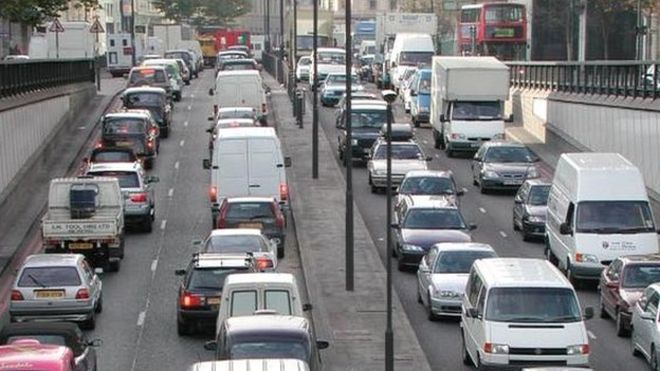Ultra Low Emission Zone
On 4 April 2017, the Mayor of London confirmed plans to introduce an Ultra Low Emission Zone (ULEZ) in the centre of the capital.
Sadiq Khan, having laid out his proposal in ‘A City for All Londoners’, published in October 2016, intends to introduce daily charges for heavy diesel vehicles driving in central London, in an effort to tackle the city’s worsening air pollution problems. The ULEZ will came into force on 8 April 2019 covering the same area as the existing congestion charging zone.
The zone will then be widened across Greater London for heavy vehicles in 2020, and up to the North and South Circular roads for cars and vans in 2021.
A daily ULEZ fee will charged for petrol vehicles that fail to meet Euro 4 standards (typically those more than 13 years old in 2019) and diesel vehicles that fail to meet Euro 6 standards (typically those more than 4 years old in 2019). These fees will apply 24-hours a day, all year round, will be in addition to the existing congestion charge, and will be as follows:
- Cars, vans, motorbikes: £12.50/day.
- Buses, coaches, HGVs: £100/day.
Justifying his drastic plans, which will be the strictest of any city in the world, Khan said: “The air in London is lethal and I will not stand by and do nothing.”
However, the proposals have sparked controversy and concerns that they could hit small businesses, van drivers and specialist hauliers particularly severely.
Natalie Chapman, Head of policy for London and South-east, Freight Transport Association (FTA), said; “We need to continue the improvement in London’s air quality which is happening anyway, but this regulation taking effect in 2019 will severely disadvantage small businesses working in the capital’s centre. The impact will be especially hard for van users, as by 2019 there will only be two and a half years’ worth of compliant vehicles in the fleet – and no second hand compliant vehicles available for purchase at all.”
The FTA is calling for businesses to have access to a ‘sunset clause’, allowing them more time to comply with the changes required.
The plans come at the same time that figures from the Department for Transport have revealed apps such as Uber and internet shopping deliveries have led to a surge in the number of cars and vans in central London.
[edit] Related articles on Designing Buildings Wiki
- A City for all Londoners.
- Air quality.
- BSRIA responds to UK Air Pollution Report.
- Cycling and walking plan.
- Engineering Cleaner Air.
- Greener City Fund for London.
- High pollution location.
- Infrastructure under Mayor Sadiq Khan.
- London infrastructure plan.
- Low Emission Zone.
- Response to Mayors consultation document.
- T-Charge.
- The London Plan.
Featured articles and news
A case study and a warning to would-be developers
Creating four dwellings for people to come home to... after half a century of doing this job, why, oh why, is it so difficult?
Reform of the fire engineering profession
Fire Engineers Advisory Panel: Authoritative Statement, reactions and next steps.
Restoration and renewal of the Palace of Westminster
A complex project of cultural significance from full decant to EMI, opportunities and a potential a way forward.
Apprenticeships and the responsibility we share
Perspectives from the CIOB President as National Apprentice Week comes to a close.
The first line of defence against rain, wind and snow.
Building Safety recap January, 2026
What we missed at the end of last year, and at the start of this...
National Apprenticeship Week 2026, 9-15 Feb
Shining a light on the positive impacts for businesses, their apprentices and the wider economy alike.
Applications and benefits of acoustic flooring
From commercial to retail.
From solid to sprung and ribbed to raised.
Strengthening industry collaboration in Hong Kong
Hong Kong Institute of Construction and The Chartered Institute of Building sign Memorandum of Understanding.
A detailed description from the experts at Cornish Lime.
IHBC planning for growth with corporate plan development
Grow with the Institute by volunteering and CP25 consultation.
Connecting ambition and action for designers and specifiers.
Electrical skills gap deepens as apprenticeship starts fall despite surging demand says ECA.
Built environment bodies deepen joint action on EDI
B.E.Inclusive initiative agree next phase of joint equity, diversity and inclusion (EDI) action plan.
Recognising culture as key to sustainable economic growth
Creative UK Provocation paper: Culture as Growth Infrastructure.
Futurebuild and UK Construction Week London Unite
Creating the UK’s Built Environment Super Event and over 25 other key partnerships.
Welsh and Scottish 2026 elections
Manifestos for the built environment for upcoming same May day elections.
Advancing BIM education with a competency framework
“We don’t need people who can just draw in 3D. We need people who can think in data.”

























